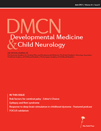
Pediatric Orthopaedics
Gait analysis with interdisciplinary treatment does not improve outcomes in cerebral palsy children
Dev Med Child Neurol. 2019 Oct;61(10):1189-1195.Sixty children with cerebral palsy receiving individually tailored interdisciplinary interventions were randomized to receive a 4-step gait analysis as part of the baseline assessment or no gait analysis. The primary outcome of interest was the Gait Deviation Index (GDI). Secondary outcomes of interest included the 1 minute walk test, the mobility scale of the pediatric evaluation of disability inventory, the pediatric quality of life inventory cerebral palsy module, and the pediatric outcomes data collection instrument. Follow up was performed at 52 weeks after the start of treatment, with patient reported outcomes being assessed at both 26 and 52 weeks. Results revealed no significant differences between the gait analysis and control group in the change from baseline in all outcomes, at all time-points.
Unlock the full article
Get unlimited access to OrthoEvidence with a free trial
Start TrialCritical appraisals of the latest, high-impact randomized controlled trials and systematic reviews in orthopaedics
Access to OrthoEvidence podcast content, including collaborations with the Journal of Bone and Joint Surgery, interviews with internationally recognized surgeons, and roundtable discussions on orthopaedic news and topics
Subscription to The Pulse, a twice-weekly evidence-based newsletter designed to help you make better clinical decisions
Exclusive access to original content articles, including in-house systematic reviews, and articles on health research methods and hot orthopaedic topics
Or continue reading this full article
Register Now

Subscribe to "The Pulse"
Evidence-Based Orthopaedics direct to your inbox.




































